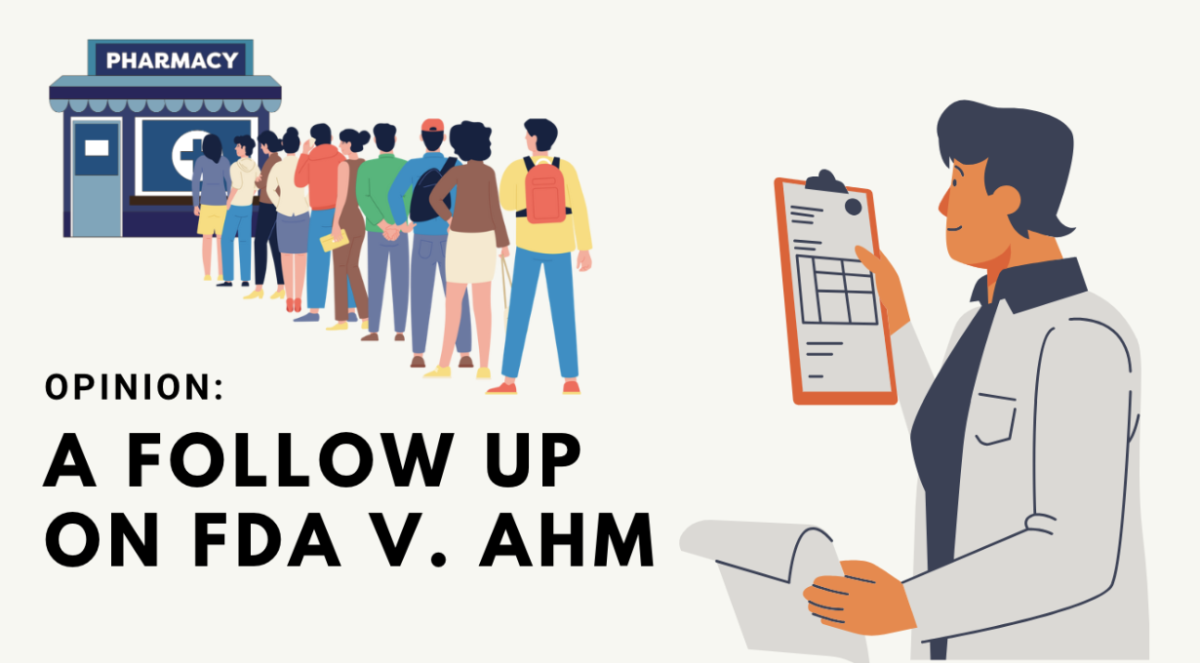On June 13, the Supreme Court unanimously ruled in favor of the FDA (Food and Drug Administration) on the subject of the emergency abortion medications mifepristone and misoprostol. In other words, there will be no additional restrictions on medical abortion being distributed in pharmacies.
With the presidential election looming over November, this decision comes at a time where it is imperative that medical abortion is protected.
Mifepristone is an abortion-inducing drug that prevents a pregnancy from continuing by blocking the hormone progesterone. Misoprostol is a drug taken as a follow up to mifepristone in order to empty the uterus.
Both mifepristone and misoprostol were cleared by the FDA for safe use in 2000, and have not faced any restrictions since. In fact, data analyzed by CNN proves mifepristone to be even safer than penicillin. However, in November of 2022, a group called the Alliance for Hippocratic Medicine (AHM) decided to challenge the FDA on their approval of the distribution of misoprostol and mifepristone from pharmacies.
These proceedings were brought into light just one month after the Supreme Court elected to overturn Roe v. Wade, a highly controversial and decidedly problematic decision that has since had negative repercussions across the U.S..
The AHM is a conservative group focused on “protecting the vulnerable at the beginning and end of life.” In other words, the AHM is pro-life and does not support abortion of any kind.
After a period of consideration, the Supreme Court issued its decision that without exception, the plaintiff’s complaints did not justify any changes in medical abortion laws. This decision was arguably the only reasonable resolution given that the AHM brought forward no evidence significant enough to support their case.
“Under Article III of the Constitution, those kinds of objections alone do not establish a justiciable case or controversy in federal court,” Justice Brett Kavanaugh said in a statement.
Justice Clarence Tomas added that the plaintiffs failed to show how the FDA’s changes in mifepristone regulations — to allow it to be distributed in pharmacies — were harmful.
To put it simply, the court ruled that mifepristone will continually be offered via telehealth and at pharmacies, with no further limitations.
So what does this mean for Wayland? Now that the AHM has lost their case, there is no present threat to mifepristone in pharmacies. Because of this, mifepristone and misoprostol will steadily be offered at pharmacies in town, including CVS and Walgreens.
As basic human rights like abortion are constantly being challenged all over the U.S., I strongly encourage community members to research and know their rights, as well as provide support for those in their lives who may need it.



























